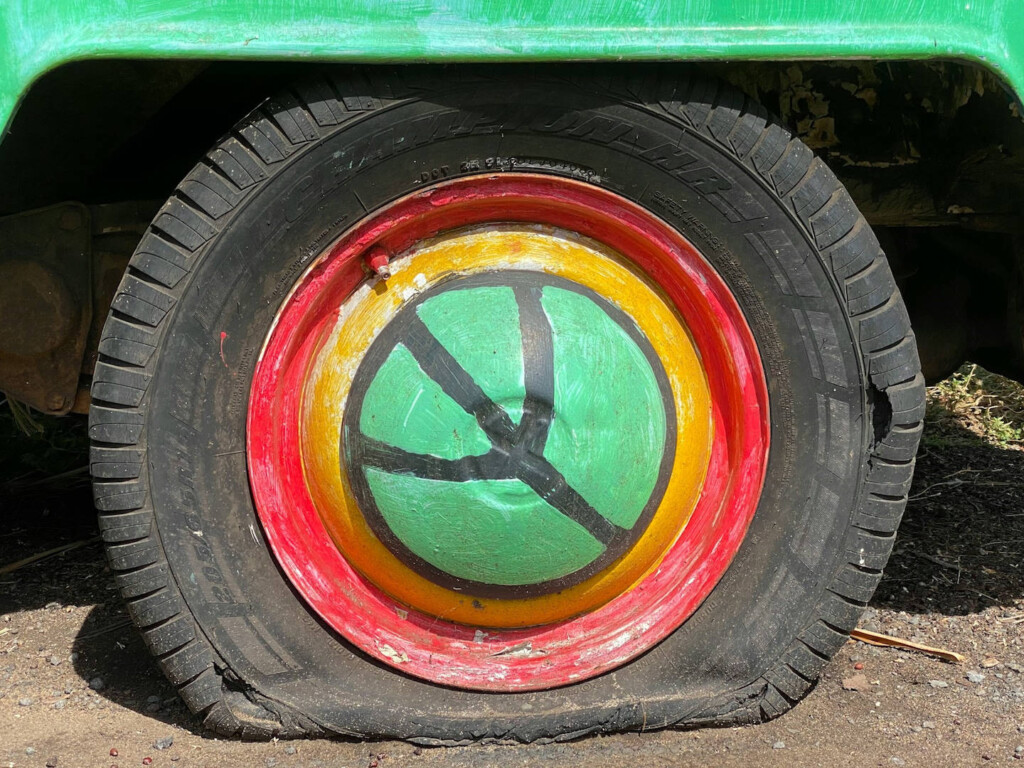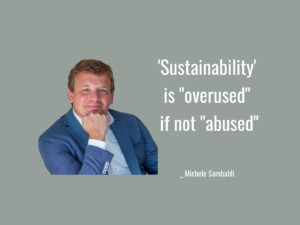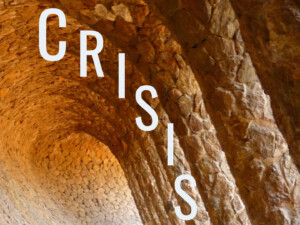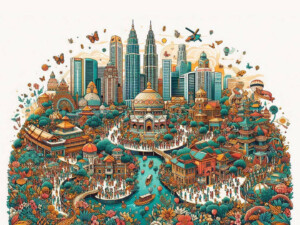A matter of taste: Travellers, tourists, and ‘tourism for peace’

Does being a ‘traveller’ or a ‘tourist’ have anything to do with ‘tourism for peace’?
Jim Butcher questions Fabio Carbone’s caricature of arrogant tourists and his claim that only travellers hold the keys to world peace.
It’s a “Good Tourism” Insight. (You too can write a “GT” Insight.)
Contents
A grand claim
Fabio Carbone, global ambassador of the International Institute of Peace Through Tourism (a notion endorsed by the United Nations no less), recently made a very grand claim in his article to mark International Tourism Day 2024:
“Without a doubt, we can suggest a causal relationship between tourism and peace. However, it is essential to clarify that certain conditions must be met for this to be genuinely possible, starting with the following: the need to bring tourism back to its essence — the travel.”
Well, I have some doubts. The last 60 years, the period in which global tourism has boomed, has hardly been free of conflict. But Carbone’s point is that it is necessary for us to become ‘travellers’ rather than ‘tourists’ for tourism to play this role.
He argues that:
“[T]ourism in its most common form often reflects — especially among Western tourists — a superficial post-historicism, an egocentric view that, perhaps unconsciously, embodies a sense of superiority with regards to the visited communities. In contrast, travelling should mean breaking down those barriers and recognizing that, at the core, we are all equal.”
That the pleasure seeker is egocentric and uninterested in history is a long-standing caricature aimed at people seeking to relax and enjoy simple holiday pleasures.
Don’t miss ‘Tourist vs traveller: What’s the difference?’
A breed apart
This pejorative and pessimistic view of the tourist is as old as mass tourism itself. The 1800s featured plenty of the great and the good bemoaning the inability of the uncultured masses to really benefit from tourism.
The stark moral distinction drawn between the cultured elite and the great unwashed did not go unchallenged. Thomas Cook and others associated tourism for the masses with progress; both social and economic.
You may have assumed that we are past all that. Yet whilst the working classes on their holidays may no longer be talked of literally as a breed apart as they were in the 1800s, today’s moralisation of tourism accuses them of failing, out of sheer thoughtlessness, to use their holidays to pursue world peace and cultural sensitivity.
Carbone is keen to tell us that unlike many of us mere tourists, he is a traveller; one of the thoughtful and caring breed. The global ambassador does not hold back.
He sees the tourist as narcissistic, and the traveller as, potentially, virtuous. The regular holiday-maker is associated with “consumeristic incontinence” and “post-colonial and post-historic arrogance”. And while the traveller takes a genuine interest in other people, the tourist “thinks he can do without others”.
This is travel as virtue signalling writ large.
‘Hell is other people’
His arguments do not stack up.
The mass tourism Carbone frowns upon is noted for its sociability; its focus on the convivial company of others. Travellers, however, are seeking respite from something; often other people. Carbone himself writes:
“I avoid traditional tourism as much as possible, even as a practice. In solitude, you are free to get lost and truly encounter the reality of the place.”
As Sartre put it, “hell is other people”.
I’d say that getting lost in solitude whilst disdaining the mass of people enjoying a regular holiday is more narcissistic than any package holiday-maker off to Benidorm for sun, lager, and cooked breakfasts. It assumes a moral superiority over others based purely on one’s taste in holidays.
Don’t miss other “Good Tourism” Insights by Dr Jim Butcher
People make tourism
As a tourist I am not anti-traveller in the way many travellers are anti-tourist. I don’t accept this moral divide between people who see their holidays as a chance to relax and recuperate with a good novel, a swim, and a suntan on the one hand, and the backpacker striking out on an odyssey of discovery on the other. It’s all good!
I like the sentiment of the Glasgow tourism marketing strapline: ‘People make Glasgow’. It is literally true for every place inhabited by Homo sapiens.
The retreat into solitude has something to be said for it though. Time alone to gather your thoughts, to contemplate meaning and appreciate beauty, is precious. But it is doubly precious when you can, having contemplated, re-engage with human culture, with all its flaws, pressures, beauty, and humanity.
You’ll miss the latter if you think you are morally superior just because you ‘freed your mind and spirit’ (got high?) at a Peruvian Ayahuasca eco-retreat or spent a week in a ‘regenerative’ treehouse in rural Mexico.
A matter of taste
Carbone recounts his own travels that involve genuine adventure. He claims they “put human encounters at the centre of [his] experience”. They sound wonderful. He is fortunate to have had these incredible experiences.
But to me, being “without contacts, without internet, without the convenience of Google Maps, and especially without fuel (!) in the middle of the Iranian plateau, with the nearest city 300 kilometres away” is no more human-centred, or to do with ‘the reality of the place’, than France’s family campsites, a bustling Barcelona beachfront, or a Manhattan AirBnB.
Fabio Carbone’s Ecuadorian adventures with machete-wielding anaconda hunters are not to everyone’s tastes. And that’s all it is: a matter of taste, not moral distinction.
Don’t miss other “GT” posts tagged ‘Peace through tourism’
Tourism for peace?
As for peace through tourism, Michael O’Leary, Chairman of RyanAir and purveyor of cheap flights for the masses, once joked that he should be up for the Nobel peace prize:
“We’re bringing cultures together! There hasn’t been a war in Europe for 50 years because they’re all too busy flying on Ryanair. I should get the Nobel peace prize – screw Bono.”
Seriously though, travel is great, if that’s your thing. But it doesn’t make you a better person than a tourist. Nor, unfortunately, does it make the world a more peaceful place!
What do you think?
Share your own thoughts about ‘tourism for peace’ and/or the differences between travellers and tourists in a comment below.
(SIGN IN or REGISTER first. After signing in you will need to refresh this page to see the comments section.)
Or write a “GT” Insight or “GT” Insight Bite of your own. The “Good Tourism” Blog welcomes diversity of opinion and perspective about travel & tourism, because travel & tourism is everyone’s business.
“GT” doesn’t judge. “GT” publishes. “GT” is where free thought travels.
If you think the tourism media landscape is better with “GT” in it, then please …
About the author
Jim Butcher is a lecturer, and a writer of a number of books on the sociology and politics of tourism. Dr Butcher blogs at Politics of Tourism, tweets at @jimbutcher2, and is the founder of Tourism’s Horizon: Travel for the Millions.
Featured image (top of post)
A matter of taste: Travellers, tourists, and ‘tourism for peace’ … Picture of flat tyre with peace sign hub cap by Charles Pickrell (CC0) via Unsplash.






